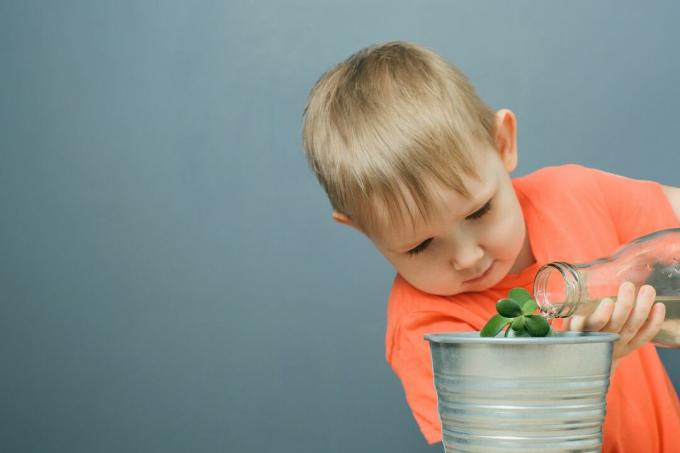The money tree is very popular as a houseplant - this raises the question of whether it is poisonous to humans or pets. Find out the answer here.

The Money Tree (Crassula ovata) is considered to be easy to care for and robust and is therefore extremely popular as a houseplant. However, the question keeps coming up as to whether we shouldn't be more careful of the penny tree, as it is also called. In our article, we investigate the myth of the poisonous money tree and tell you whether it poses a danger to humans or animals.
Is the money tree poisonous?
The money tree is a symbol of luck and prosperity and is therefore a welcome guest on the windowsill or desk in the office. It is also often passed on as a symbolic gift. However, the exotic plant does not come from our latitudes, but from South Africa. Since many tropical plants that we value as houseplants are poisonous Many concerned gardeners rightly wonder whether the money tree is also poisonous could. So does the penny tree pose a risk to small children, adults, dogs, cats and the like? We clarify and tell you whether these concerns are justified.
Is the money tree poisonous to humans?
For everyone who appreciates the money tree, here is the all-clear: It does not contain any toxic ingredients and can therefore be classified as non-toxic. Succulents have the ability to store large amounts of water in their leaves. If you cut these leaves, the plant sap escapes, but it does not cause skin irritation when it comes into contact with the skin. The plant parts of the money tree are also not poisonous if swallowed.

In its homeland in South Africa, the roots and leaves of the money tree are even used as a medicinal and pleasure plant. This is how some tribes cook the roots of the Crassula ovata out to eat as a vegetable. The leaves are boiled in milk there and used as a remedy for stomach and intestinal problems. However, if you want to taste the money tree root, you should be careful. Only try this at home if you are sure that the plant has not been exposed to toxic fertilizers or pesticides. Otherwise, these toxic substances could lead to poisoning.
Attention: Although the Crassula ovata non-toxic, other succulents (Crassulaceae) but not at all. It is therefore essential to ensure that your money tree is really the species Crassula ovata and not another potentially venomous species.
Is the money tree poisonous for cats, dogs and Co.?
The money tree is also harmless to animals such as dogs, cats or small rodents. So you can place the houseplant in your apartment without hesitation and don't have to worry if your four-legged friends nibble on the plant out of curiosity.
The money tree is therefore harmless and dangerous neither for you nor for children or animals. You can easily set it up in the home, in the office or in the garden in summer. In case you are looking for more child and animal safe plants for the garden If you are interested, you can read more about this topic here.



